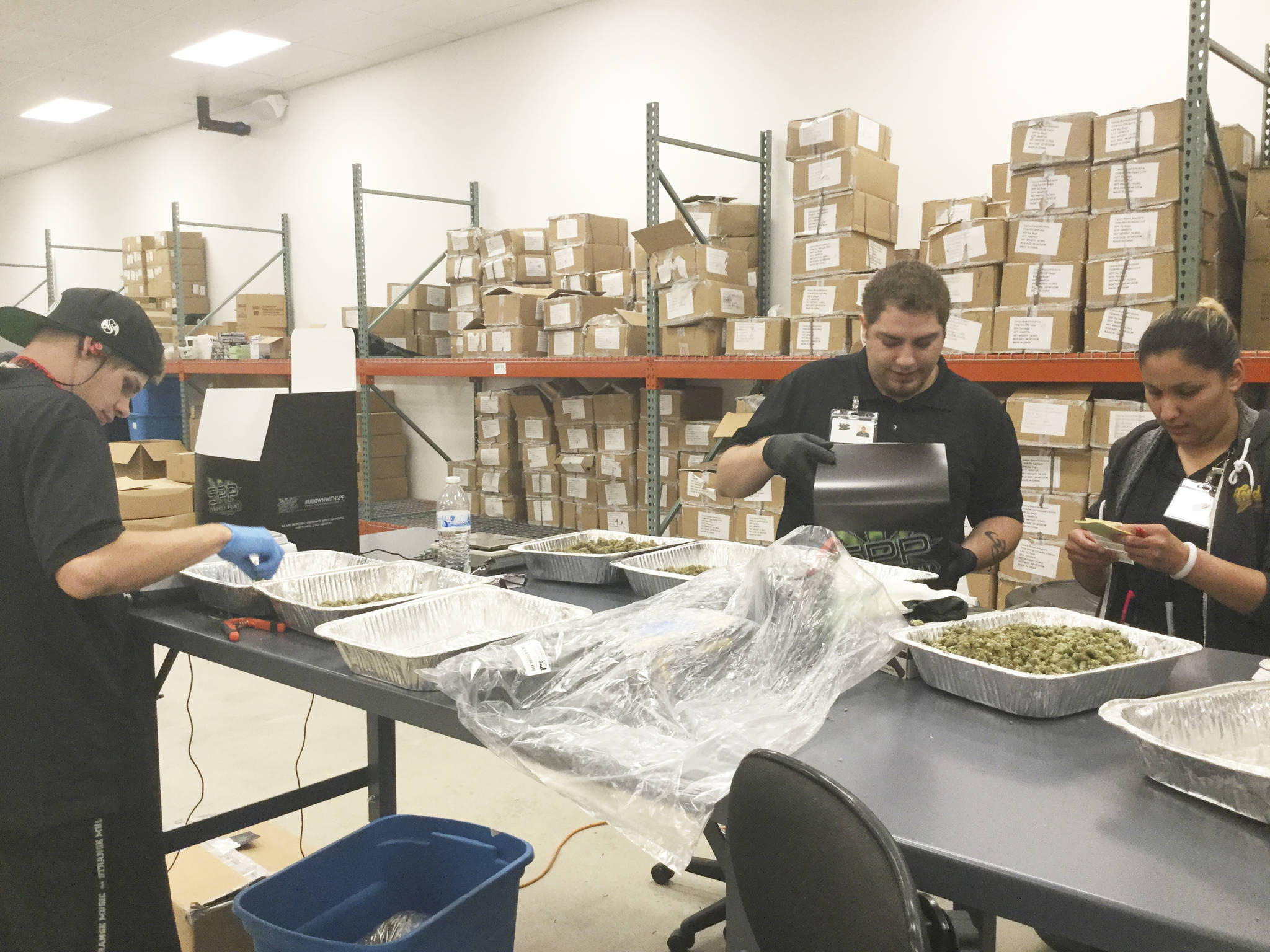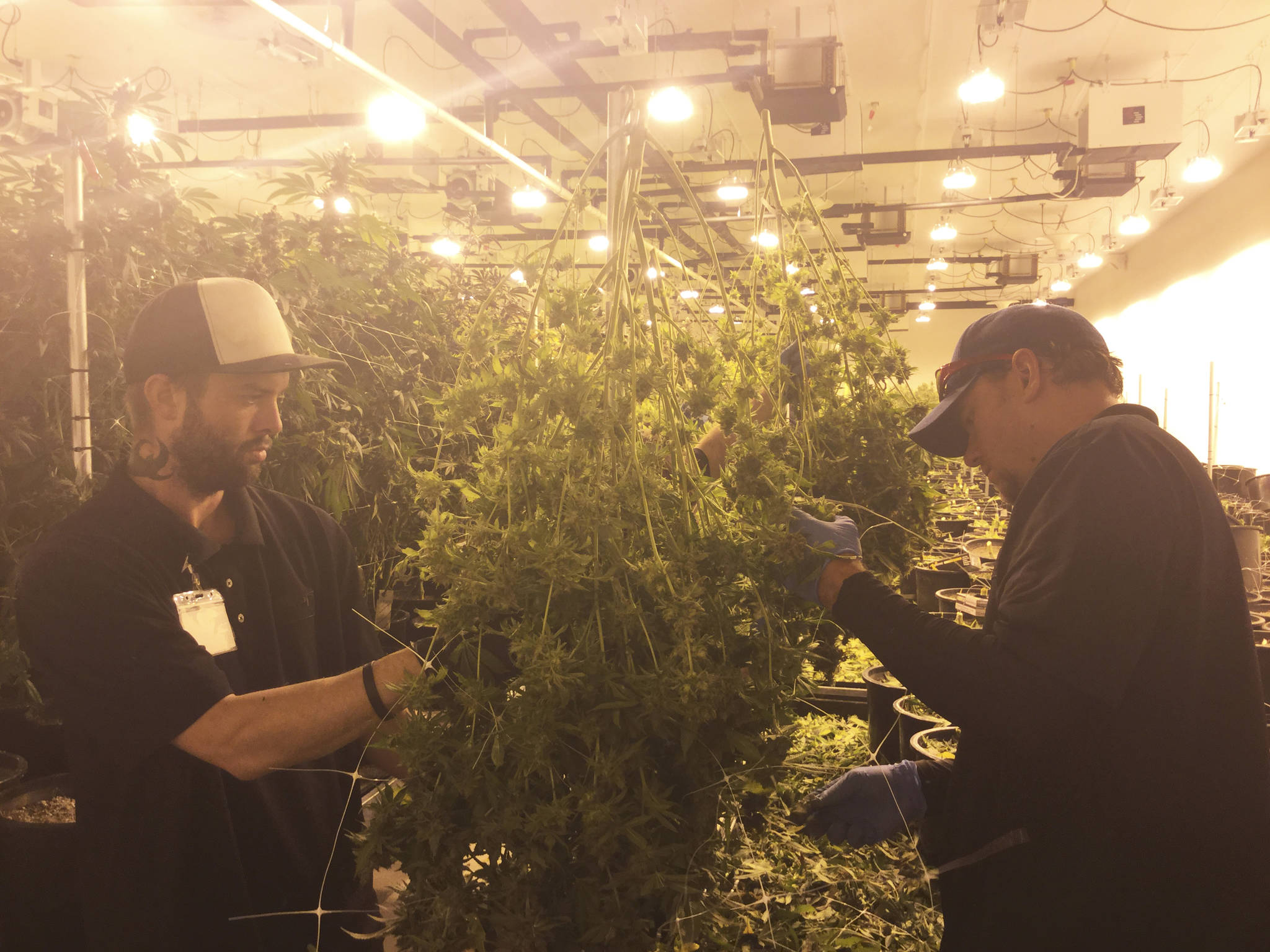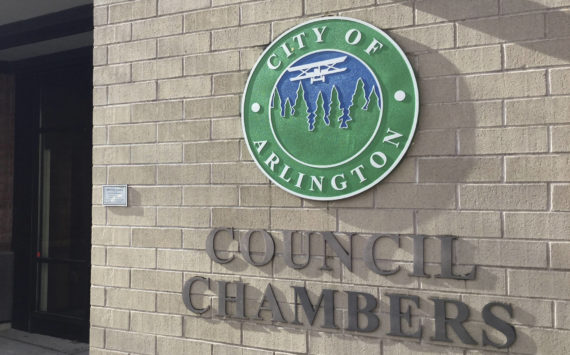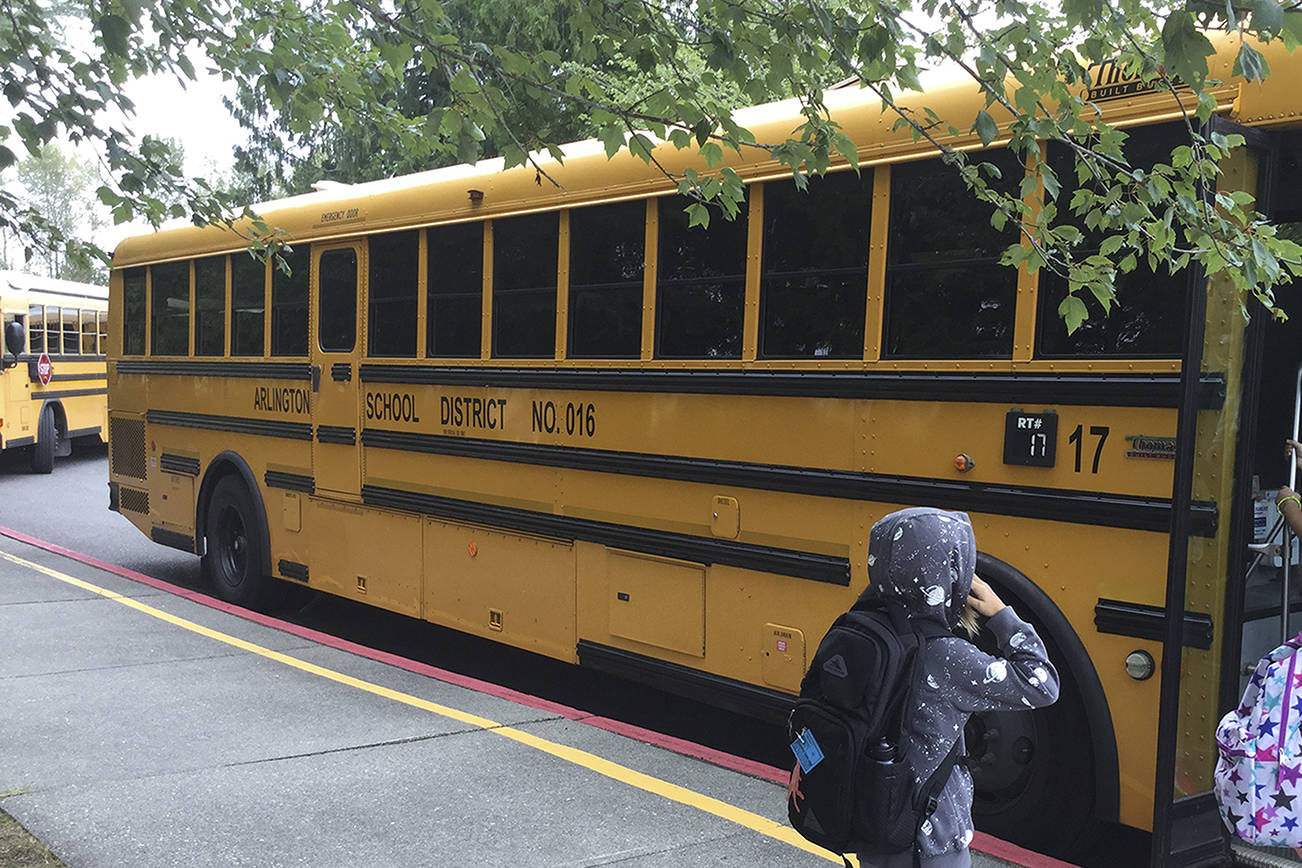Update – A judge issued a final order Friday that the state Liquor and Cannabis Board can revoke the license for The Clone Zone, a large-scale cannabis producer in Arlington, giving the company 10 days to clear up two of four non-criminal violations that are still on appeal, or face a mandatory shut down.
It may be too little too late, even if a group of supportive lawmakers in this Legislative session get bills passed to include amnesty language for administrative violations that occurred before June 30, 2018.
ARLINGTON – A large-scale marijuana producer in Arlington with 120 employees may have to close down due to a handful of minor non-criminal violations.
The Clone Zone’s license could be revoked immediately, the business would be closed, and they would be forced to destroy their entire inventory.
The state Liquor and Cannabis Board is moving to cancel the license for The Clone Zone because it was docked with four administrative violations over three years.
That’s enough to shut down the company and have a domino effect on its other family of business such as Rolling Farm and Smokey Point Productions, which rely on The Clone Zone.
The owners disagree with the board’s actions, insisting that the violations were minor and clerical in nature.
“The Clone Zone and its family of Smokey Point Productions businesses do not deserve a death sentence for record-keeping errors,” CFO Emily Lade said.
The violations involved, for example, “baby” plants that grew higher than 8 inches, faster than being tagged and registered in the tracing system; illegible tags that faded when exposed to water; a missing tracking number, and a mis-entered duplicate listing by a worker, all of which were immediately addressed by the company, along with paying fines amounting to $40,625.
More recently, a fourth violation was issued in 2017 involving an employee who overlooked three boxes of concentrate on a shelf above his head that were supposed to be part of a 10-box delivery (with only seven delivered), and electronic miscommunication of data between the company’s inventory tracking system and the state’s traceability system.
The company updated the software to fix the problem, Lade said. The violation is currently under appeal in Thurston County Superior Court in Olympia.
Lade said the company adheres to guidelines in the federal Cole Memorandum, which reads that the state board’s regulations for traceability are intended primarily to prevent access and distribution of marijuana to minors, influence and participation by illegal drug organizations, and diversion of cannabis onto the black market.
The Clone Zone violated none of those principles, Lade said.
Now the business is fighting for its life.
A summary judgment was issued to cancel The Clone Zone’s license Jan. 7 on the basis of the four violations within three years.
However, three days prior, the company was granted a temporary restraining order in Thurston County to prevent the state board from cancelling the license for two weeks.
A hearing is set Friday for a judge to determine whether the order should be continued through the entirety of the appeal. The record includes several letters written by employees that their livelihood and jobs they’re passion about aren’t taken away.
Meantime, the company has drawn the support of some state lawmakers and the Arlington mayor who side with the owners, and wrote to the board and agency director that they want to rewrite industry regulations.
Four state lawmakers, led by Rep. Derek Stanford (D-Bothell), chairman of the House Commerce and Gaming Committee, and Sen. Ann Rivers (R-La Center), an industry advocate in Clark County, sent a letter to the Liquor and Cannabis Board.
They want to introduce bills this legislative session modeled after the system that has been in place at Labor and Industries and other agencies for decades.
“That system focuses on compliance before enforcement,” they wrote. “It recognizes that industry members should have the opportunity to rectify mistakes as long as the issues do not represent risk to public safety.”
They said the pioneer years for the cannabis industry in Washington has “been a learning experience for everyone involved.”
Mayor Barb Tolbert said beyond the economic benefits, the company has participated in civic events, downtown improvements, park cleanups, food bank holiday food and toy drives and supported funds to reduce the impacts of opioid addiction in the community.
In a Jan. 11 letter to Liquor and Cannabis Board members, she urged them to suspend the final order to cancel The Clone Zone’s Producer/Processor license.
In 2018, the board cancelled nine licenses and have 28 revocations in progress, including The Clone Zone.
“The business is a great community member and has not incurred an administrative violation for the past fourteen months,” Tolbert said.
She said the two violations received within the past three years do not come close to the state’s biggest regulatory concerns, such as public safety or diversion of cannabis into the black market.
Tolbert said, “A few administrative violations resulting in fines and implementation of more stringent best practices should not add up to the closure of a thriving business that goes above and beyond to invest in its local community.”
Lade is proud that the company and its employers are engaged in the community that welcomes them. “Businesses that are committed to their local community enable smaller cities and towns to thrive.”
She said it isn’t just about the business; it’s the employees who depend on them.
“As much as we can try to reassure them that we’re strong and reliant and working on plan A, B and C, they’re worried about their job and their families,” Lade said.








